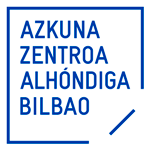
Saint-Mandé (Francia), 1975. Independent curator, since 2013 she has researched the concept of what artistic work is, the working conditions and social perception. She has been part of the group Historias em display (WT) in Brazil, a collaborative project on critical insertions in historic narratives. Among her programs worth special mention are TRABALHE – FAÇA +, Ícaro Lira: Campo Geral, in São Paulo; La Historia la escriben los vencedores (History is written by the winners), Felipe Ehrenberg 67//15, After, Depois, Según, in Madrid; Munárriz: Sulla curva chiusa en Cagliari; The way you read a book…, in Munich; y Aplicación de las teorías de flujos, (Application of flow theories) with Carlos Amorales and Los Torreznos in Buenos Aires.
She has a degree in Art History from the Complutense University of Madrid, a master’s degree in Cultural Management from the Ortega and Gasset Institute and is the curator for ICI New York (Bogota, 2013). After having lived in Chile, in 2009 she moved to Brazil where she ran the Gallery Baró. In 2012 and 2013 she was the director of Pivô Arte e Pesquisa, São Paulo. She was responsible for LOOP Barcelona, 2017. She is a professor of Curating Practices of the master’s degree at the SUR School (University Carlos III, Círculo de Bellas Artes). She has written texts for artists such as Marlon de Azambuja, Analivia Cordeiro, Julius Heinemann, Almudena Lobera, Bruno Moreschi, Sara Ramo or Tercerunquinto, and collaborates with EL CULTURAL and a-desk.
Share:
The autonomism of the Italian workerism was a review of Marxism, advocating for, among other things, the abolition of work. In 1977 the labour tension did not only affect the workers, but also the young and the students. That year could be understood as an end to the utopias of 68, but, above all, as the beginning of a scale of uncertainty and precariousness that characterizes the cognitive capitalism of our times. Within this framework, groups such as Indiani Metropolitani, the activity generated by Radio Alice, or the proposals of the feminist movements looked for solutions to the rejection of work and the wager on diversity as a creative seed, through irony and a free, moving body.
The curatorial project stemms from the study of the archives of that time and interviews with protagonists such as Pablo Echaurren or Franco “Bifo” Berardi, and a theoretical analysis of the paradigm of the artist as a worker. It sets forth a debate on the artistic practices and their social role, from the intersection of philosophical theories, post-colonial, and post-work. For that, apart from the research there were various workshops, a seminary, and the edition of an essay.
The agenda of professional encounters with artists and local and international agents, as well as the Academy itself, proposes spaces in which to debate on problematic and conceptual practices that become a concern when they are artistic. Each one of the three workshops was developed with a subject about which to share experiences within an unlocated context and action. Paisajes del trabajo (Work landscapes), was a debate on the professionalization of our industrial kitchen, counting on the piece Garbage Girl (Manteniendo el mundo del arte) 2007, of the resident Estíbaliz Sádaba. The second workshop took place in an independent space No Working, with the collaboration of the curator Sara Alberani and the resident designer Silvia Fernández Palomar. El placer de perderse (The pleasure of getting lost) was a laboratory that followed business strategies to improve productivity and the use of time. The goal was to abide by the original timing, marked by the sound piece El reloj (The clock) by Los Torreznos, and finish the proposals to communicate and better explain the value of the way we do things.
The third encounter takes the stage at the Centrale Montemartini, the first power plant of the city. Currently, the sculptures of the rational of Athena and the exalted Dionisio are cut out on machines, serving as a starting point for a visit to a performance through history and the energy that it moves, mythology, electric, or digital.
The Project finishes its Roman phase with a public session: No estoy trabajando. Estamos haciendo (I am not working, we are making). Going over the eight working hours, we speak of how action and desire, hand and head will relate, and imagine what type of society we would like. With this end in mind, the concept of work and economy infiltrating practices and lives, was analysed. Each person who participated in this was a fundamental part of the project, because of their thoughts and their generosity in sharing knowledge and experience: Josè Angelino & Simone Pappalardo, Alessandro Balteo-Yazbeck, Itziar Barrio, Andrea Canepa, Cabello/Carceller, Pablo Echaurren, Antje Ehmann, Ana Esteve Reig, Esther Ferrer, Jacopo Galimberti, Cristina Garrido, Elisa Giardina Papa, Cesare Pietroiusti and Remedios Zafra.
To speculate from the curatorial ambient means abiding by historical rigor, all the while opening towards other areas of contact and of sharing. The support of this grant was imperative for its delivery, but it has also given a conducive context to unite references and ideas with bodies and affection. Production, work, and tasks are words that take place in our daily conversations. They pierce us all, as the co-living experience in Rome confirms – thanks especially to those colleagues who added the documentation of their works in the Open Studio: Taxio Ardanaz, Itziar Barrio, Nicolás Combarro, Lara Dopazo Ruibal, Silvia Fernández Palomar, Pablo Fidalgo Lareo, Pedro G. Romero, Begoña Huertas, Julia Huete, Estíbaliz Sádaba, Fernando Sánchez-Cabezudo, Anna Talens and Tono Vizcaíno-.To stop and reflect from where we think, gives us the opportunity to imagine from where we can re-think. The challenge will be reflected in an essay.
